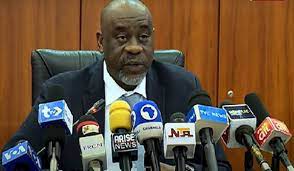Some regional and merchant banks numbering over 20 are likely to be affected by the latest hints by the Central Bank of Nigeria (CBN) to increase the capital base of banks operating in the country.
Recall that governor of the Central Bank of Nigeria, Yemi Cardoso had recently hinted on the possible recapitalisation of Nigerian banks from the current N25 billion for a national banking license, N10 billion for a regional banking license, and N50 billion for an international commercial banking license to yet to be agreed sum.
The CBN Governor, Olayemi Cardoso, had on Friday in his keynote address at the Bankers’ Dinner said the apex bank would be asking banks to raise their capital base.
He premised the need to increase the bank’s capital base on servicing the $1tn economy projected by President Bola Tinubu as well as the effect of currency devaluation on bank operations.
Findings by Blueprint show that a number of the national, regional and merchant banks have not grown their capital base over the years in the manner their counterparts with foreign subsidiaries have grown theirs.
While tier one banks like Zenith Bank, UBA, Access Holdings, FBNH GTCO, Ecobank are rock solid with over N1 trillion as capital bases, smaller banks, according to sources may be affected, hence decisions to begin seeking new investors which will help them remain in business after the CBN had disclosed the fresh capital base.
Already, Wema Bank, First Bank of Nigeria Holding and Fidelity Bank are some of the banks that have proposed to raise funds from the capital market.
Findings showed that Wema Bank is planning an N40 billion Right Issue scheduled to begin in December.
Similarly, FCMB group completed the issuance of a Series 2 Additional Tier 1 Capital Bond under its N300 billion Debt Issuance Programme for its Banking Subsidiary, bringing the total Additional Tier I Capital raised during the year to N46.7 billion as at the end of September, 2023.
Reacting to the decision of the CBN, Sonny Iroche, a retired investment bank in a paper said it is crucial for the CBN to reassess and as a matter of urgency, and consider raising the capital base of Nigerian banks, from their existing levels.
According to him, these will be necessary measures to prevent bank losses and possible failures as a result of the ongoing economic crisis that has accentuated the vulnerability of Nigerian banks, especially with their current capital when juxtaposed with the US dollar value.
“By raising the capital base of Nigerian banks, to at least N1 trillion, the CBN can better prepare them to withstand these challenges. Increased capitalization will provide a buffer against potential losses and enable banks to continue lending and supporting economic activities.
“This approach will not only strengthen the capital base of banks but also enhance their overall stability and efficiency. By merging weaker banks with stronger ones, the CBN can prevent potential failures and consolidate resources to better support economic activities,” he added.
Also reacting, a former president of the Chartered Institute of Bankers of Nigeria, Professor Segun Ajibola, revealed that it would be difficult to predict what the new minimum capital base would be.
He said, “It is a difficult figure for anybody to come up with. Even the central bank cannot come up with any figure as of today. All they have thrown into the open is a need. And that need for recapitalisation cannot be faulted for many reasons.
“To come up with a figure, you have to do a lot of work. It should be more engaging now than before when the N25bn was announced. I expect that the Bankers Committee, the central bank and even other agencies will sit down to determine what is the desirable figure that will be able to help banks themselves, their shareholders, customers and the economy.
‘So it is not just a figure that anybody can drop anyhow. Otherwise, the problem of 2005 where banks of different backgrounds, cultures, and orientations, forced themselves together and the industry was in chaos.”




